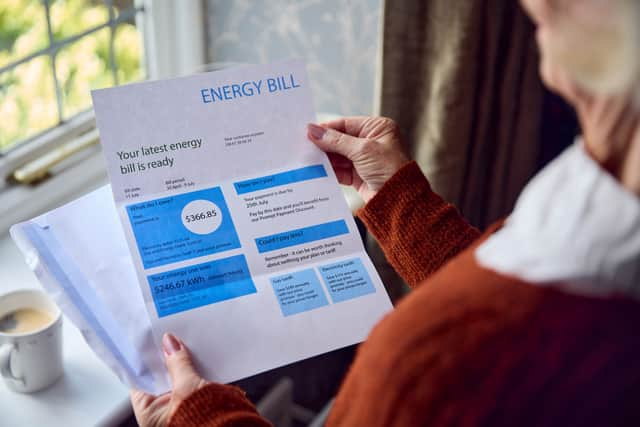Why are energy bills going up? Energy price guarantee and support scheme changes - is the government helping?
and live on Freeview channel 276
Although the current rate of the energy price guarantee was extended by Chancellor of the Exchequer Jeremy Hunt in his Spring Budget, your energy bills are likely to rise from April.
Some households will have received letters from their gas and electricity suppliers in recent weeks warning them of a change to their unit prices and standing charges. Meanwhile, the end of the government’s energy bills support scheme is also set to hike costs.
It comes as several key household utility bills, including council tax and water bills, are set for significant hikes. These increases are coming despite the cost of living crisis.
People’s budgets have already been eroded by record inflation, which grew unexpectedly in February 2023. In a bid to counter it, the Bank of England has raised interest rates to 14-year highs - although this too has led to significant hikes for some monthly costs, like mortgage repayments.
So, why might your energy bills be set to rise from April - and is the government providing any further support?
How much will energy bills rise?
There are two factors that will mean many households are likely to see their energy bills go up in April.
The first is that the government’s energy bills support scheme is ending. The £400 scheme, which has seen £66 and £67 discounts applied to bills since October 2022, will pay out its last instalment in your energy bill for March 2023.


If you have built up credit with your energy supplier with the help of this scheme, you may not immediately notice the increase in your bills. But if you don’t have this sort of arrangement in place, you could see your bill rocket.
With spring increasing the chances of the country having warmer weather conditions, any increase may be offset to some extent by less of a need for heating. Also, bills should go down over the summer when the Ofgem price cap is expected to fall as a result of tumbling wholesale energy prices.
The other factor behind why energy bills could rise is the energy price guarantee. Although it is locked in at its current £2,500 a year average rate until June 2023, unit prices and standing charges are being adjusted slightly from 1 April - in some cases by as little as a fraction of a penny.
This change could see your bills rise or fall by the equivalent of a pound or two a year, so any fall will not be enough to offset the ending of the energy bills support scheme. How your bills will change will depend on where you live, but unit prices will be coming down for most people.
On a UK-wide basis, average unit charges from April to June will be 33.2p/kWh (pence per kilowatt hour) for electricity and 10.3p/kWh for gas for people on standard variable tariffs (i.e. the majority of households).
The highest unit rates are in the North Wales and Mersey electricity grid area, where people will pay 35.75p/kWh for electricity and 10.5p/kWh for gas (a slight drop from the January to March rates of 2.6p and 0.1p respectively). The cheapest rates are in the Northern energy area (from Northumberland down to North Lincolnshire), where households will pay 32.91p/kWh and 10.38p/kWh (a fall of 0.8p and 0.2p respectively).


Between April and June, standing charges will be capped at an average of 50.4p per day for electricity and 27.7p per day for gas wherever you are. But how much you pay may be slightly higher or lower than these figures depending on your supplier.
Why is the energy price guarantee changing?
Given Jeremy Hunt announced in March that the energy price guarantee will be staying at the same rate, you may be confused about why it’s changing slightly between April and June.
According to the government, unit prices are changing to reflect the underlying costs of supplying energy incurred by the power grids that run Great Britain’s energy network. It says the average household bill will still work out at roughly £2,500 a year at the current rates.
The reason why standing charges may be changing for you is down to your energy supplier. They may adjust it depending on how much it costs them to provide energy infrastructure (like smart meters) to your home. Given inflation has seen prices rise across the economy, it means your standing charge is likely to go up.
Is the government providing any more energy bills support?
The government has not announced any extra energy bills support to replace its winter energy bills support scheme. But it has made several cost of living payments available to vulnerable and low-income households that are intended to help cover basic costs, including gas and electricity.
If you’re struggling with an increase to your energy bill, you should contact your energy provider in the first instance. Under Ofgem rules, they have to work with you to find a way to help you pay for your gas and electricity.
Solutions they may suggest include: breaks from payments, reductions in your bill and more time to pay back any outstanding debts. They may also offer you access to their hardship fund.
Comment Guidelines
National World encourages reader discussion on our stories. User feedback, insights and back-and-forth exchanges add a rich layer of context to reporting. Please review our Community Guidelines before commenting.
